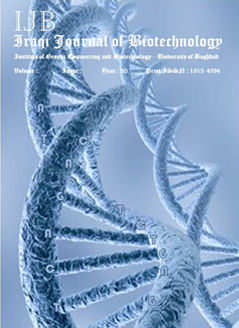Role of leukemia inhibitory factor(LIF) gene variation on implantation rate following IVF program in PCOS and non PCOS women
Abstract
Implantation of the blastocysts into the maternal uterus is a crucial step in mammalian reproduction, which is controlled by a number of complex molecules like hormones, cytokines, and growth factors and their cross talk. A network of these molecules plays a crucial role in preparing receptive endometrial and blastocysts. This study aimed to found out the role of Leukemia inhibitory factor (LIF) , gene expression, concentration and genetic polymorphisms in the endometrial that may interfere with implantation process of polycystic ovary syndrome(PCOS) and non-PCOS women. A convenient blood (6ml)sample of 80 infertile women undergoing in vitro fertilization (IVF) program were intentionally divided according to the cause of infertility into 40 healthy women their husbands complaining from male infertility factors, and 40 infertile women with polycystic ovary syndrome. Leukemia inhibitory factor( LIFs) were measured on ovulatory and luteal phase of cycle (CD14-CD16,17) at the day of ovarian pickup and embryo transfer by using quantitive polymerase chain reaction(qPCR ), Elisa technique ,polymerase chain reaction(PCR) and sequencing to determine any genetics polymorphisms in LIFgene study. Results of the present study indicate that no mutation was detected in LIF gene in the healthy and PCOS women. The LIF gene expression in addition to levels of serum leukemia inhibitory factors are more valuable in predicting the pregnancy out come in infertile PCOS women than in non-PCOS women .This result can be utilized to be used as predictors of implantation window for successful implantation and pregnancy.


